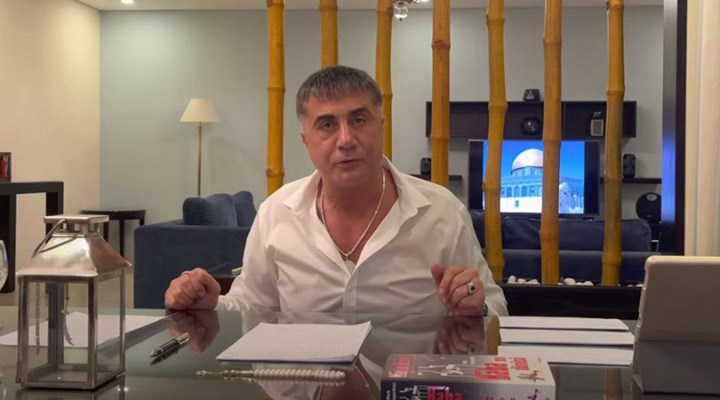Levent Kenez/Stockholm
The Turkish parliament next Saturday enters its last legislative term before the upcoming elections in 2023, and it is almost certain to be a period for passing legislation for electoral promises planned by the government. The first bill that is scheduled to be enacted is a new social media law that the government defines as the fight against disinformation and the opposition calls a censorship law.
The approval of the bill, whose committee procedures were finished in June, was delayed by the government since the expected snap elections were not announced. According to the bill, which imposes heavy sanctions on reporting against the government and sharing it on social media, people who help these critical news stories spread on social media will also be deemed to have committed a crime.
A Justice Committee report obtained by Nordic Monitor shows that the bill will be discussed in parliament exactly as the government proposed, disregarding the opposition’s objections. During the debates on the parliament floor, it is likely that the government and its partner, the far-right Nationalist Movement Party (MHP), will propose additional articles as it has many times in the past. It is a method frequently used by the government to enact some laws by adding them to a bill at the last minute in order to avoid any public discussion.
With the new articles being added to the Turkish Penal Code, the crime of “publicly disseminating misleading information” is defined for the first time. A person who spreads disinformation is defined as “a person who publicly disseminates false information about the internal and external security, public order or general health of the country in a way that is suitable for disturbing the public peace, with the sole aim of creating anxiety, fear or panic among the public. Those who commit this crime will be sentenced to imprisonment of between one and three years. If the accused hides it or commits it within the framework of terrorist organization activity, the penalty will be increased by half.”
An interesting detail is that social media platforms will also be liable if “fake news” is spread through hashtags, under the assumption that the social media platform is involved in a crime for failing to censor the messages, according to Paragraph 15 of Article 34 of the bill. It is obvious that this will lead to censorship of social media platforms. Worse, social media users who include these hashtags in their posts might be deemed to have committed a crime.
According to objections made by opposition parties during the committee meetings, this “fake” news does not necessarily have to be about the security of the state. For instance, the Turkish Statistical Institute recently announced annual inflation at 80.2 percent. However, according to the prestigious Inflation Research Group (ENAG), made up of academics, the actual rate of annual inflation was 181.37 percent as of August. Opponents claim that publishing the inflation rate announced by ENAG will be regarded as fake news and that even media organizations that publish it will be penalized.
Many political observers state that the news stories the government is trying to censor are mainly about corruption and the government’s relations with criminal organizations. Considering the threats of arrest and detention of journalists in Turkey and the self-censorship they must engage in to protect themselves, Turkish journalists living abroad or in exile are mainly targeted. Since these journalists publish their news using various social media platforms, articles have been deliberately included in the new bill aiming to reduce the impact of their stories.
The social media accounts of many exiled journalists are mostly blocked in Turkey. Among them is investigative journalist Cevheri Güven, who has exposed the government’s dirty laundry through YouTube videos watched by millions. Güven’s address in Germany was revealed last week in the Sabah daily, which is owned by the family of Turkish President Recep Tayyip Erdoğan. The story, which included the message that the government was unhappy with his YouTube videos, also put Güven’s life at risk given his revelations about criminal organizations and the mafia.

Mafia boss Sedat Peker, who was once a close ally of President Erdoğan, is undoubtedly the one who made the revelations that the government hated the most. Peker, who lives in the United Arab Emirates (UAE), revealed scandalous information on corruption, weapons sent by the government to jihadists in Syria and ruling party relations with drug gangs in the videos he started to post via Youtube in 2021. Peker was prohibited from using social media by the UAE authorities, with which Turkey has managed to repair relations, after he promised to make revelations that he claimed would shock the country two months before the elections.
Meanwhile, Emre Olur, an aide to Peker and his social media consultant, was deported from the UAE to Albania last week and then brought to Turkey and arrested. Many journalists claimed that their colleagues in contact with Peker will be detained on charges of affiliation with Peker’s criminal organization and that plans are in motion to intimidate critical journalists before the elections.

Nordic Monitor previously reported that the new media bill includes protections in favor of the Turkish intelligence agency (MİT). If there is a reasonable suspicion that documents belonging to MİT are used in publications, MİT will be able to take action to block the content, and journalists who are thought to have these documents will face criminal prosecution. According to the draft bill, MİT documents cannot be used in the news regardless of whether the news is true or false.
The Information and Communication Technologies Authority (BTK), upon the application of MİT, can decide to block the access of stories without the need for a court decision. In addition, whether to block the site or the news link is left to the discretion of the BTK. In other words, if there is a violation of the law in a Facebook post, access to the entire Facebook site from Turkey can be blocked.
The bill stipulates that grounds for arrest are deemed to exist for suspects accused of producing criminal content regarding the activities and personnel of MİT. The content is not defined. The distinction between the commission of the crime in Turkey and abroad has been removed in order to more effectively combat offenses that require arrest.
Considering that MİT has become very powerful thanks to President Erdoğan in recent years, it seems unlikely that a request from the agency will be rejected by any state institution.












